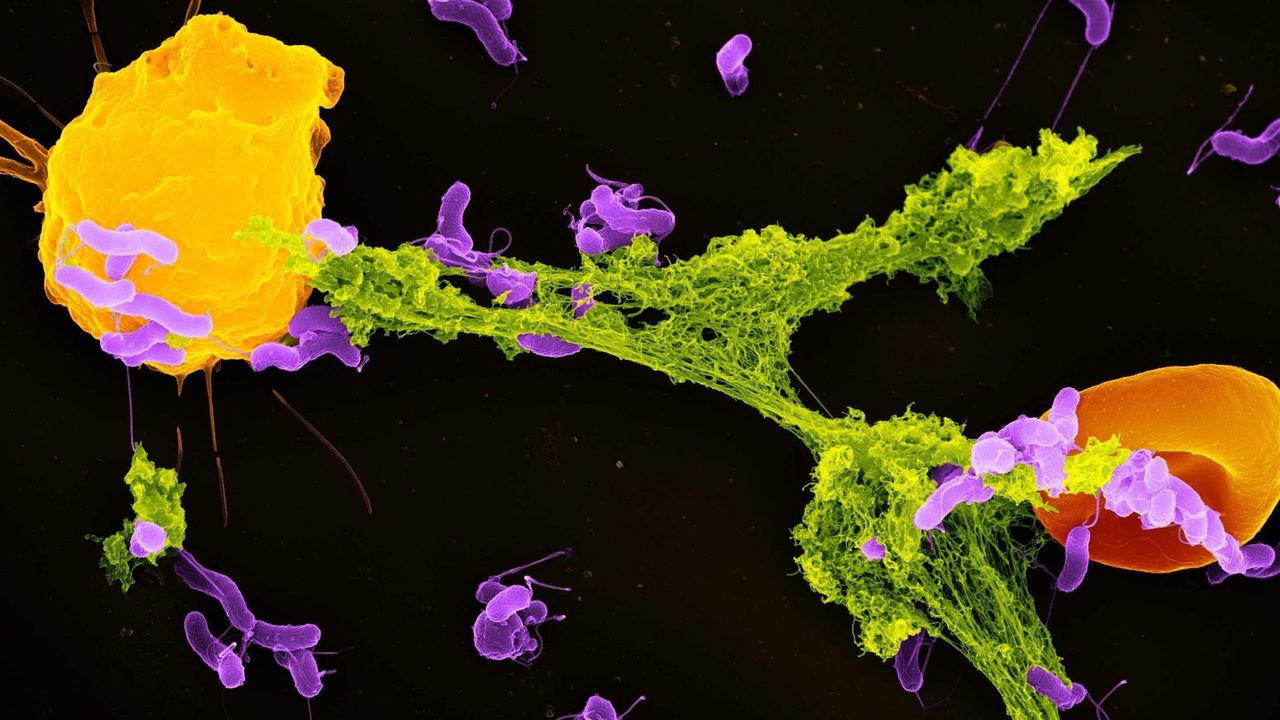Now Reading: Mitochondria: Beyond Powerhouses, Key Players in Germ Defense
-
01
Mitochondria: Beyond Powerhouses, Key Players in Germ Defense
Mitochondria: Beyond Powerhouses, Key Players in Germ Defense

Quick Summary
- Mitochondria’s expanded Role: beyond energy production,mitochondria are involved in immune functions like controlling inflammation,regulating cell death,and responding to infections.
- New revelation: Research shows mitochondria detect bacterial activity via lactate, signaling neutrophils (an abundant type of white blood cell) to produce neutrophil extracellular traps (NETs) that trap bacteria.
- Mechanism Explained: Bacteria release lactate during energy production. This lactate signals the mitochondria in neutrophils to organize NET formation for enhanced immune defense. Blocking this mechanism weakens bacterial capture and increases infection risks.
- Link to Autoimmune Vulnerabilities: Dysfunctional mitochondrial sensing is linked with diseases like lupus,where reduced NET formation leaves patients vulnerable to recurrent infections despite an overactive immune system.
- Potential Therapeutics: Insights could lead to drugs enhancing mitochondrial sensing for better immunity or suppressing excessive NET responses in autoimmune diseases and conditions like severe COVID-19.
Image Credit:
Watch Related Video on YouTube.
Indian Opinion Analysis
The discovery of mitochondria playing a critical role in immune response represents both scientific advancement and practical healthcare potential globally. For India, which consistently faces challenges regarding autoimmune diseases like lupus and infectious outbreaks such as tuberculosis or drug-resistant bacterial strains, this research carries significant implications.
From a healthcare system perspective, understanding immunometabolism might enable targeted treatments-enhancing immunity for individuals with weaker defenses while mitigating harmful inflammatory responses associated with autoimmunity or severe infections. By incorporating such innovations into mainstream medicine, India’s pharmaceutical research institutions could leverage these findings toward developing cost-effective therapies tailored specifically for local disease burdens.
Furthermore, promoting collaborative immunology studies within Indian laboratories can pave the way for contributions on similar lines-possibly elevating India’s standing as a leader in global medical innovation while addressing domestic health priorities comprehensively.


























